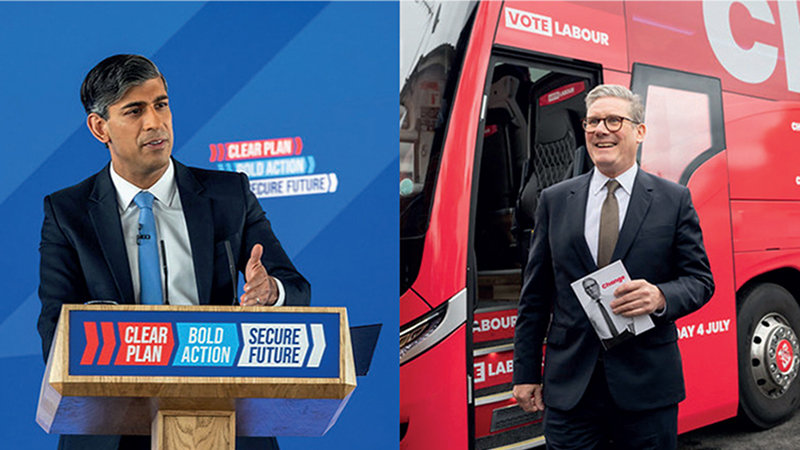With the UK election two weeks away, both the Labour and Conservative parties have outlined tax policies which include no increases to income, VAT, or corporation tax, leaving some with questions on revenue.
The Labour party has so far outlined plans to place a windfall tax on oil and gas giants which would fund a publicly-owned clean energy company, creating revenue of £1.2bn. In addition, they’ve outlined a plan to tackle tax avoidance by updating the HMRC and closing non-dom tax loopholes to create £5.23bn in revenue.
An increase in stamp duty by 1% for residential property purchases by non-UK residents was outlined by Labour for an additional £40m in revenue. The party also plans to close a loophole with qualifies performance-related pay in private equity as capital gains.
The Conservative Party have announced a 2% cut to employee National Insurance from April 2027, and relief of Capital Gains Tax if landlords sell to existing tenants. They have also placed a target on tax avoidance and evasion, with a revenue of £6bn a year by the end of parliament.
Other policies by the Conservative Party would include no stamp duty for first time buyers for a value up to £425,000 and an offer of a 20% government equity loan.
Rachel Vahey, head of public policy at AJ Bell, said: “Their major long-term goals have been set out, but there are still some doubts across the board about whether the overall sums and anticipated level of revenue make sense.
“The two main political parties seem tied on a promise not to increase income tax, national insurance or VAT, with the Conservatives going one step further to promise a cut in national insurance contributions for employees and to abolish them for the self-employed.”
She added: “Tellingly, none promised to tackle the stealth tax of frozen thresholds, at least in the short to medium term. Except for pensioners, where the Conservatives promised their ‘triple-lock plus’ would also apply to the personal allowance for this group to keep them from paying tax on their state pension.
The Lib Dem Party plans for revenue include further investment in HMRC, closing loopholes surrounding capital gains tax by the ‘super wealthy’, a reversal of the tax cuts put in place by Conservatives for big banks, and a one-time windfall tax of oil and gas providers on super profits. The party has also proposed a 4% tax on share buybacks for companies within the FTSE 100.
The Reform Manifesto also mentioned improvement of the HMRC. Among other policies, it outlined an increased VAT threshold, raising the corporate tax threshold to £100k and an increase income tax thresholds to £20,00 for minimum income threshold and £70,000 for higher rate threshold.











